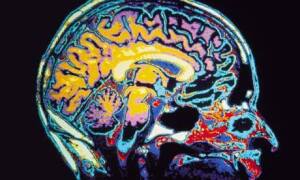por
Brendon Nafziger, DOTmed News Associate Editor | November 02, 2010
A drug that can save stroke patients' lives but only has a narrow window of use could be more widely applied thanks to guidance offered by MRI scans of the brain, according to a new study.
In a study published online in the December issue of Radiology, researchers said MRI scans can accurately predict the duration of a stroke, potentially helping doctors know if it was safe to administer a tissue plasminogen activator, or tPA.
These drugs dissolve the blood clots that choke off the supply of blood to the brain, causing some ischemic strokes. However, tPAs are only effective if administered within the first three hours of suffering a stroke, and can't be given afterward because they carry a slight risk of brain bleeding.



Ad Statistics
Times Displayed: 74494
Times Visited: 5313 MIT labs, experts in Multi-Vendor component level repair of: MRI Coils, RF amplifiers, Gradient Amplifiers Contrast Media Injectors. System repairs, sub-assembly repairs, component level repairs, refurbish/calibrate. info@mitlabsusa.com/+1 (305) 470-8013
"As many as a quarter of all stroke patients cannot be given tPA because they wake up with stroke symptoms or are unable to tell their doctor when their stroke began," lead researcher Dr. Catherine Oppenheim, professor of radiology at Université Paris Descartes in France, said in prepared remarks.
In the retrospective study, Dr. Oppenheim and her colleagues analyzed data drawn from 130 stroke patients examined at the Saint-Anne Hospital in Paris, about half of whom received MRI scans within three hours of stroke onset and the other half between three and 12 hours after onset. Time of stroke onset was known for each patient, the researchers said.
Using only MRI data sets, including diffusion-weighted imaging, fluid-attenuated inversion recovery and apparent diffusion coefficient ratios, the researchers said they could predict with 90 percent accuracy whether a stroke had lasted more than three hours.
Nonetheless, the researchers still need to validate the results in clinical trials before the technique can be used to help the nearly 795,000 Americans who suffer a stroke every year, according to the American Stroke Association. But if the findings hold, researchers said MRI scans could shake up how stroke patients are handled in the emergency room.
"With the use of MRI, all stroke patients could be managed urgently, not just those patients with a known onset of symptoms," Oppenheim said.

